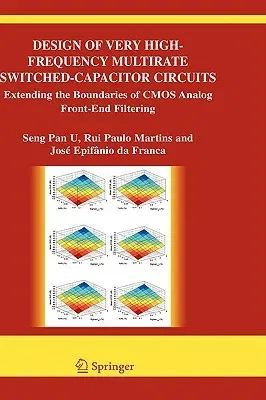Ben U Seng Pan
(Author)Design of Very High-Frequency Multirate Switched-Capacitor Circuits: Extending the Boundaries of CMOS Analog Front-End Filtering (2006)Hardcover - 2006, 20 December 2005

Qty
1
Turbo
Ships in 2 - 3 days
In Stock
Free Delivery
Cash on Delivery
15 Days
Free Returns
Secure Checkout

Part of Series
The Springer International Engineering and Computer Science
Part of Series
International Series in Engineering and Computer Science
Part of Series
Kluwer International Series in Engineering and Computer Scie
Part of Series
Springer International Series in Engineering and Computer Sc
Print Length
228 pages
Language
English
Publisher
Springer
Date Published
20 Dec 2005
ISBN-10
0387261214
ISBN-13
9780387261218
Description
Product Details
Book Edition:
2006
Book Format:
Hardcover
Country of Origin:
NL
Date Published:
20 December 2005
Dimensions:
23.39 x
15.6 x
1.6 cm
ISBN-10:
0387261214
ISBN-13:
9780387261218
Language:
English
Location:
New York, NY
Pages:
228
Publisher:
Series:
Weight:
539.77 gm